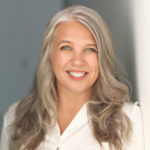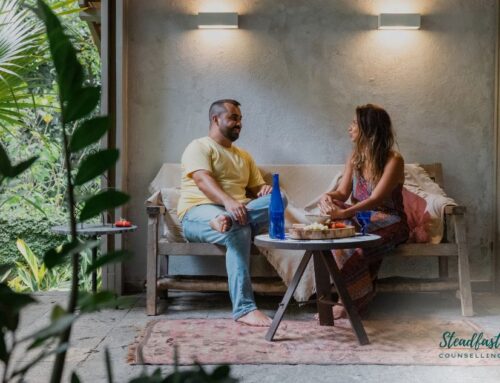One of the most, if not the most important things we need as human beings, is love. To know and feel loved. To know that we matter, and that we are attached and connected to someone. This is an inherent need. We are wired (as babies) to reach for someone in need and to respond to someone in need, to connect.
Caring for and loving each other comes easily for many couples in the beginning. Over time, and for many different reasons, this can become difficult.
The ways in which we express and receive care and loving are different based on many factors:
- Good caring and loving we have experienced in our life. Times when we have really felt cared for and loved.
- Loss and trauma also contribute to our ability to receive and give caring and love (in our past and in our current relationships).
- How love and caring was expressed or not expressed in our homes and communities growing up.
Sometimes we can get stuck in rehearsing a negative cycle with each other. I often hear couples say things like, “If I have to tell you how to care about me then it isn’t really caring; if you really cared, you would just know.” I suggest that the opposite is true; we have all endured some disappointments around love, and that makes it harder for us to have access to our abilities to easily express our love and caring for each other. As a couple, if you can take the time to say to each other, “caring for you is important” and “I am willing to take a risk here and learn something new”, that in itself is an act of loving.
 Here is a worksheet that will support you and your partner in creating a dialogue about this. This is a tool to have a meaningful conversation. It is also information. It does not mean that the way your partner wants to be cared about is always the way to do it; it just means that if your goal is to have your partner really experience feeling cared about, this tool gives you a direct and effective way to do that.
Here is a worksheet that will support you and your partner in creating a dialogue about this. This is a tool to have a meaningful conversation. It is also information. It does not mean that the way your partner wants to be cared about is always the way to do it; it just means that if your goal is to have your partner really experience feeling cared about, this tool gives you a direct and effective way to do that.
Download worksheet
Download worksheet + blog article
Laura Bradley
Laura is a Master Therapeutic Counsellor and a Registered Counselling Supervisor (MTC,RCS,#2022) with the Association of Cooperative Counselling Therapists of Canada (ACCT). She is also a Certified Group Facilitator.







